
Veterans Suicide Prevention: Columbia Protocol Training and Veteran Suicide Prevention Panel
Wednesday, July 17th, 2024
2:30pm to 5:00pm ET
LIVE WEBINAR
Presenter: Columbia Lighthouse Project & Aynisa Leonardo, LCAT, ATR-BC
FREE FOR ALL ATTENDEES
This workshop is approved for 2.5 continuing education credit hours for licensed social workers, licensed mental health counselors, licensed marriage and family therapists and licensed psychologists
Please ensure that you register and/or join on Zoom with the name you would like to appear on your certificate.
|
|
Workshop Description
This workshop will feature a 1 hour presentation from the Columbia Lighthouse Project followed by a 1.5 hour presentation and panel on Veterans Suicde prevention.
Columbia Lighthouse Presentation Description: Assessing for suicide risk should be as routine as checking blood pressure — and, with the Columbia Protocol, it’s just as quick. The Columbia Protocol — also known as the Columbia-Suicide Severity Rating Scale (C-SSRS) — was developed to assist practitioners and others to better identify people at suicide risk. It also helps optimize resources by directing people to the right level of care. The C-SSRS, is an evidencebased screening tool that consists of a simple series of questions that anyone can use in any setting; hospital or community based to prevent suicide. This module introduces the C-SSRS, provides research on the importance of screening for suicide risk, and provides information on the validity of the scale and how to assess for protective factors in the context of a risk assessment. In addition, the learner is provided with detailed instructions concerning the administration of the scale.
Preventing Veteran Suicide Panel Description: Undiagnosed or untreated mental health trends are lead contributing factors to suicide rates in our country. This workshop will explore potential red flags and risk factors leading up to suicidal thinking, as well as interventions that are most effective in managing them. Workshop will discuss challenges that veterans face while transitioning home, managing PTSD symptoms, and/or navigating the healthcare system, and howthese combined factors can lead to feelings of helplessness and hopelessness. Speaker will present relevant statistics, trends, and cultural/clinical factors associated with Suicide Prevention. Workshop will be educational and interactive, providing an overview of effective communication strategies in dealing with high risk situations. Panelists will share their work with suicide intervention and prevention as well as their personal experience with suicide ideation and attempts.
Learning Objectives
After the completion of this webinar, participants will be able to:
- Utilize the Columbia-Suicide Severity Rating Scale (C-SSRS) and explain how screening with the tool can be used to identify at-risk individuals.
- Identify risk factors and warning signs for people at risk for suicide.
- Outline the types of suicidal ideation and the four behaviors that are predictive of imminent risk.
- Explain how the application of a systematic best practice measurement tool such as the C-SSRS leads to enhanced detection of suicidal thoughts and actions, ultimately increasing accuracy and, as a result, saving lives by better identifying individuals at risk for suicide.
- Identify at least 3 red flags, or indications, of suicidality.
- Define terms related to Suicide, such as Means and Motivation.
- Identify at least 3 risk factors that categorize an individual as moderate to high risk.
- Identify at least 3 new communication skills for crisis de-escalation.
- Identify at least 3 effective interventions or resources for Suicide Prevention.
This workshop is approved for 2.5 continuing education credit hours.
NASW-NYS is recognized by the New York State Education Department’s State Board for Mental Health Practitioners as an approved provider of continuing education for licensed social workers (Provider ID #0014), licensed mental health counselors (Provider ID #MHC-0053), licensed marriage and family therapists (Provider ID #MFT-0037) and licensed psychologists (Provider ID #PSY-0088).
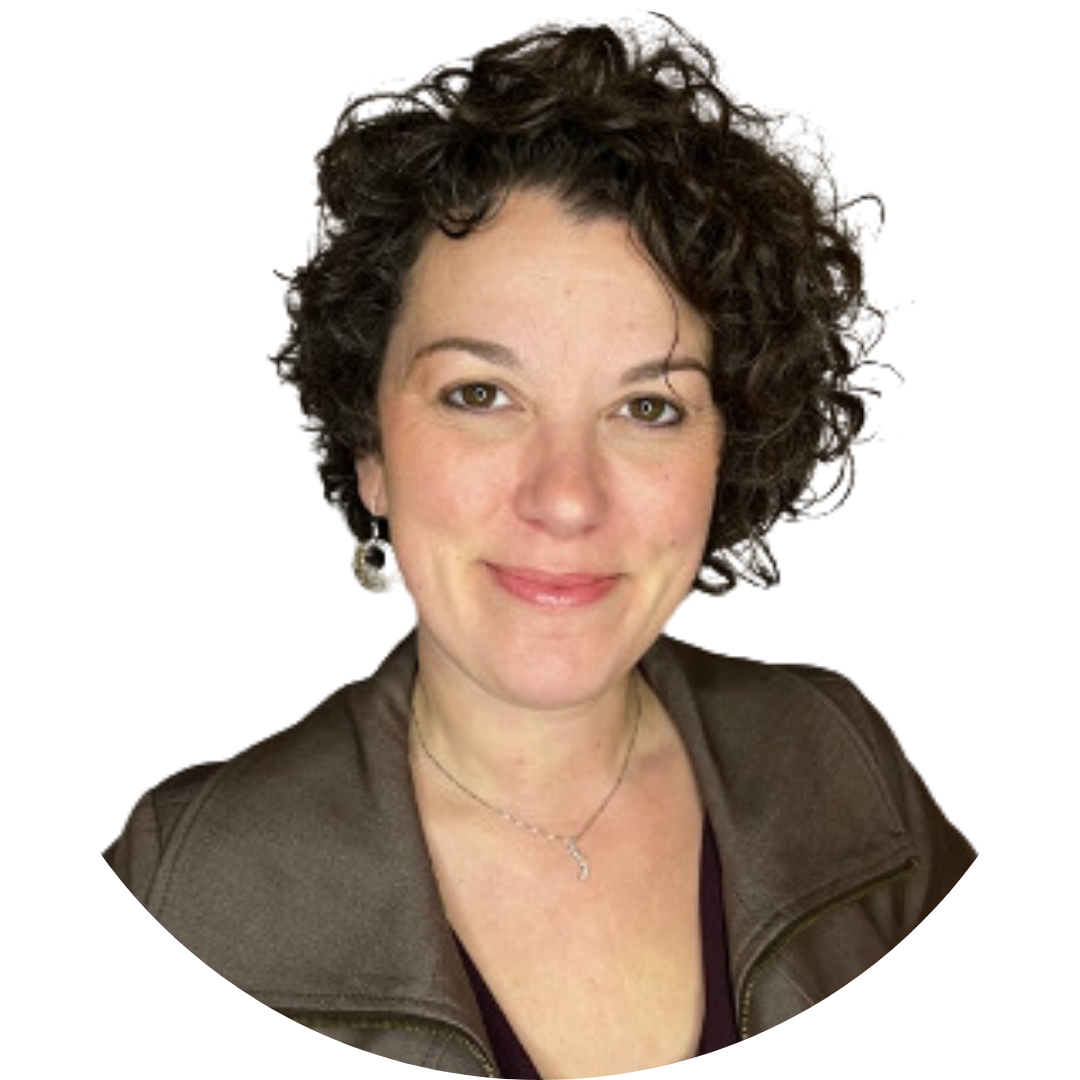 Aynisa Leonardo is a Licensed Clinical Art Therapist (LCAT, ATR-BC), who has been in the field of mental health services for 16+ years. She is the VP of Clinical Outreach at Water Gap Wellness. Her prior experience includes working in inpatient, outpatient, and non-profit settings with clients experiencing posttraumatic stress, addiction, family conflict, and other mental health challenges. She has concentrated on advanced program development and clinical education, locally and nationally. She continues to provide evidence-based and interactive style presentations to hospitals, non-profits, and corporate agencies, in an effort to raise awareness of current trends and improve competency within the healthcare community.
Aynisa Leonardo is a Licensed Clinical Art Therapist (LCAT, ATR-BC), who has been in the field of mental health services for 16+ years. She is the VP of Clinical Outreach at Water Gap Wellness. Her prior experience includes working in inpatient, outpatient, and non-profit settings with clients experiencing posttraumatic stress, addiction, family conflict, and other mental health challenges. She has concentrated on advanced program development and clinical education, locally and nationally. She continues to provide evidence-based and interactive style presentations to hospitals, non-profits, and corporate agencies, in an effort to raise awareness of current trends and improve competency within the healthcare community.
The Columbia Lighthouse Project’s mission is to light the way to ending suicide. Our message, like the Columbia Protocol itself, is simple: “Just Ask. You Can Save a Life.”
The Project was formed under the auspices of Columbia University to disseminate the Columbia Protocol — also known as the Columbia-Suicide Severity Rating Scale (C-SSRS) — as well as to optimize the protocol’s impact through support for its users, and to continue to build the science behind the protocol. The Columbia Protocol is a key to ending suicide — a devastating, but preventable, worldwide public health crisis.
Worldwide, nearly 1 million people die by suicide each year — equal to one life lost every 40 seconds. Suicide is the No. 1 killer of adolescent girls and the second-leading cause of death among people ages 15–29, according to the World Health Organization. Reports from the Centers for Disease Control and Prevention show that in the U.S. alone, more than 12 million adults seriously considered suicide in 2019 and more than 45,000 people took their own lives; that’s more than the number of people who die each year in car crashes.
These tragedies are preventable if, as a critical first step, we can identify people who are most at risk for dying by suicide and direct them to the help they need. Experience and research prove that the Columbia Protocol can help anyone do just that. Its effectiveness and ease of use make the protocol a vital tool for suicide prevention. As the most evidence-supported tool of its kind, the Columbia Protocol epitomizes the concept of “science to service,” providing a way to apply extensive research findings to real-world situations to save lives.
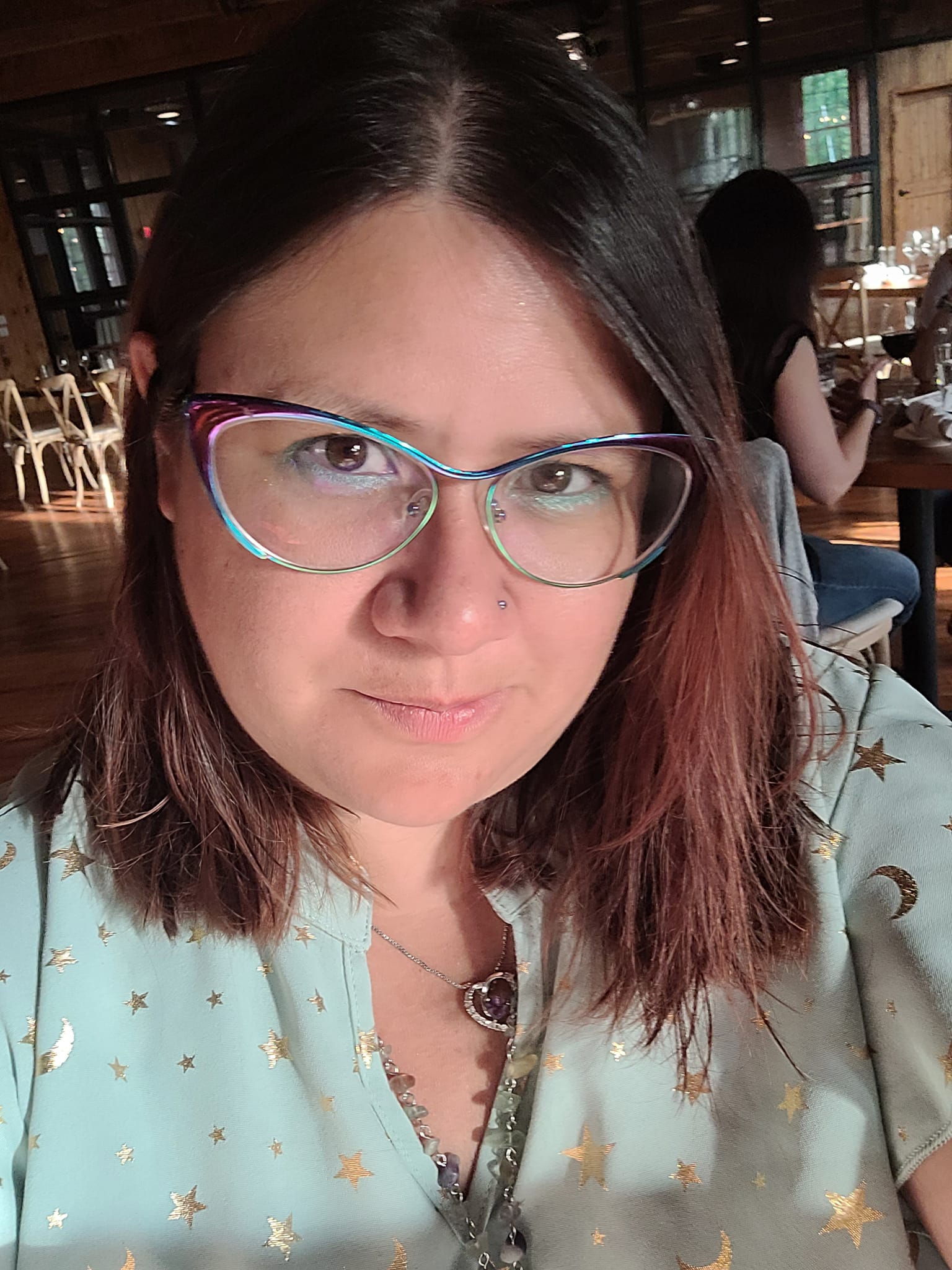 Alyssa Carrion graduated from the United States Military Academy at West Point in 2004 with a B.S. in Spanish and Portuguese. She served as a 2nd Lieutenant in the U.S. Army, with roles including Platoon Leader and Battalion Executive Officer, and later in the Army Reserves until 2012. Deployed to Egypt, she earned several awards including the Meritorious Service Medal. Alyssa also holds a B.S. in Speech and Hearing Sciences and a Paralegal Certificate. She is currently the Director of Veterans Programs at Mental Health America of Dutchess County and is active in veteran support roles. She lives in Carmel, NY with her partner and two children.
Alyssa Carrion graduated from the United States Military Academy at West Point in 2004 with a B.S. in Spanish and Portuguese. She served as a 2nd Lieutenant in the U.S. Army, with roles including Platoon Leader and Battalion Executive Officer, and later in the Army Reserves until 2012. Deployed to Egypt, she earned several awards including the Meritorious Service Medal. Alyssa also holds a B.S. in Speech and Hearing Sciences and a Paralegal Certificate. She is currently the Director of Veterans Programs at Mental Health America of Dutchess County and is active in veteran support roles. She lives in Carmel, NY with her partner and two children.
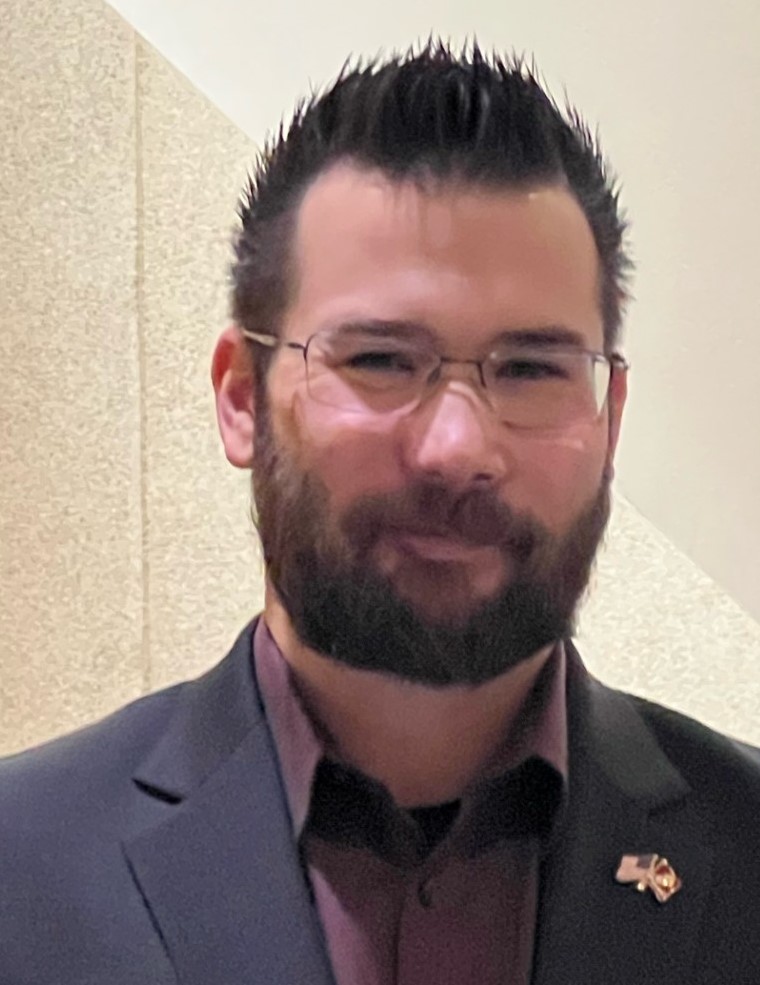 Casey Lancaster is a former United States Marine Corps Corporal who served as an 0331 Machine Gunner. His experience in the military, coupled with personal challenges including PTSD following his service, has fueled a deep commitment to mental health advocacy. Casey is currently dedicated to enhancing mental health services and support for veterans and first responders. In his role at Forge Health, he leverages strategic advocacy and leadership to improve access and effectiveness of mental health initiatives, aiming to make a significant impact in the lives of those who serve and protect.
Casey Lancaster is a former United States Marine Corps Corporal who served as an 0331 Machine Gunner. His experience in the military, coupled with personal challenges including PTSD following his service, has fueled a deep commitment to mental health advocacy. Casey is currently dedicated to enhancing mental health services and support for veterans and first responders. In his role at Forge Health, he leverages strategic advocacy and leadership to improve access and effectiveness of mental health initiatives, aiming to make a significant impact in the lives of those who serve and protect.
 Brent Russell is a Desert Storm Army veteran who served from 1990 to 1992 with the 369th communication Battalion. He was released with an honorable-medical discharge out of Fort Dix N.J. Brent graduated with a Masters in Social work from Adelphi University in 2014 and now is a LMSW working on getting certification for his practice. Brent Russell is the Director of Veterans Services at the Mental Health Association of Nassau County which houses “The PFC Dwyer Peer Support Project of Nassau County” and also “The Veterans Health Alliance of Long Island”. He oversees 14 Veteran peer support groups and coordinates different events geared to engage the Veteran and family member to connect them with positive resources if needed. Ultimately leading Veterans and family members to good health and wellness.
Brent Russell is a Desert Storm Army veteran who served from 1990 to 1992 with the 369th communication Battalion. He was released with an honorable-medical discharge out of Fort Dix N.J. Brent graduated with a Masters in Social work from Adelphi University in 2014 and now is a LMSW working on getting certification for his practice. Brent Russell is the Director of Veterans Services at the Mental Health Association of Nassau County which houses “The PFC Dwyer Peer Support Project of Nassau County” and also “The Veterans Health Alliance of Long Island”. He oversees 14 Veteran peer support groups and coordinates different events geared to engage the Veteran and family member to connect them with positive resources if needed. Ultimately leading Veterans and family members to good health and wellness.
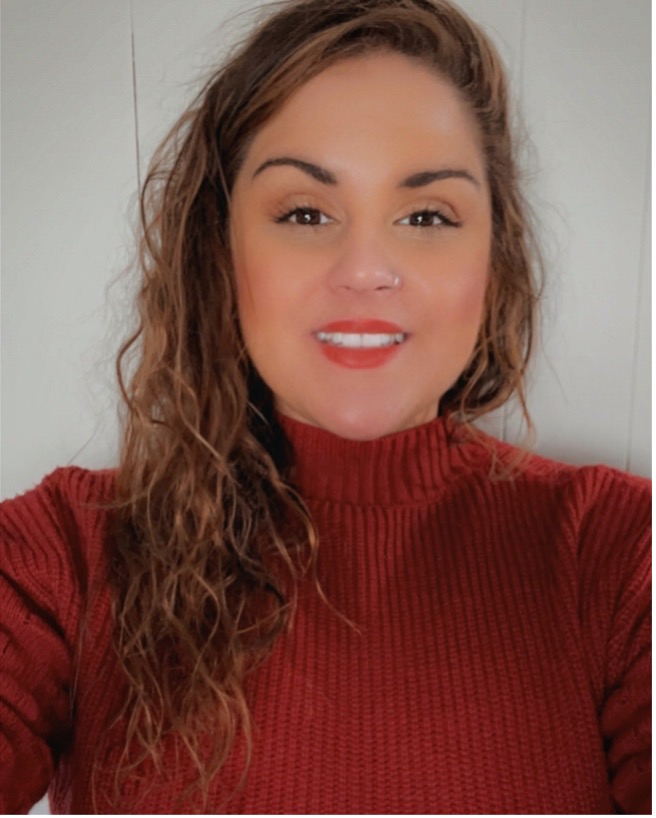 Dani Koulermos, a U.S. Army Veteran, served as a Military Police Officer from 2012 to 2016. After her honorable discharge, she earned a master’s degree in Mental Health Counseling and Clinical Art Therapy from Long Island University, focusing on PTSD and MST. She conducts an online Military Sexual Trauma webinar series and participates in the Resource Coalition at Northport Veterans Affairs Medical Center and the Veterans Suicide Coalition. She served on the Suffolk County Women’s Advisory Commission and was honored in 2023 for her military service and community contributions. Her PTSD and MST-themed artwork has been exhibited at Columbia University and LIU POST galleries. Dani also has experience as a Veterans Counselor at the Victims Information Bureau, supporting rape crisis and domestic violence counseling.
Dani Koulermos, a U.S. Army Veteran, served as a Military Police Officer from 2012 to 2016. After her honorable discharge, she earned a master’s degree in Mental Health Counseling and Clinical Art Therapy from Long Island University, focusing on PTSD and MST. She conducts an online Military Sexual Trauma webinar series and participates in the Resource Coalition at Northport Veterans Affairs Medical Center and the Veterans Suicide Coalition. She served on the Suffolk County Women’s Advisory Commission and was honored in 2023 for her military service and community contributions. Her PTSD and MST-themed artwork has been exhibited at Columbia University and LIU POST galleries. Dani also has experience as a Veterans Counselor at the Victims Information Bureau, supporting rape crisis and domestic violence counseling.
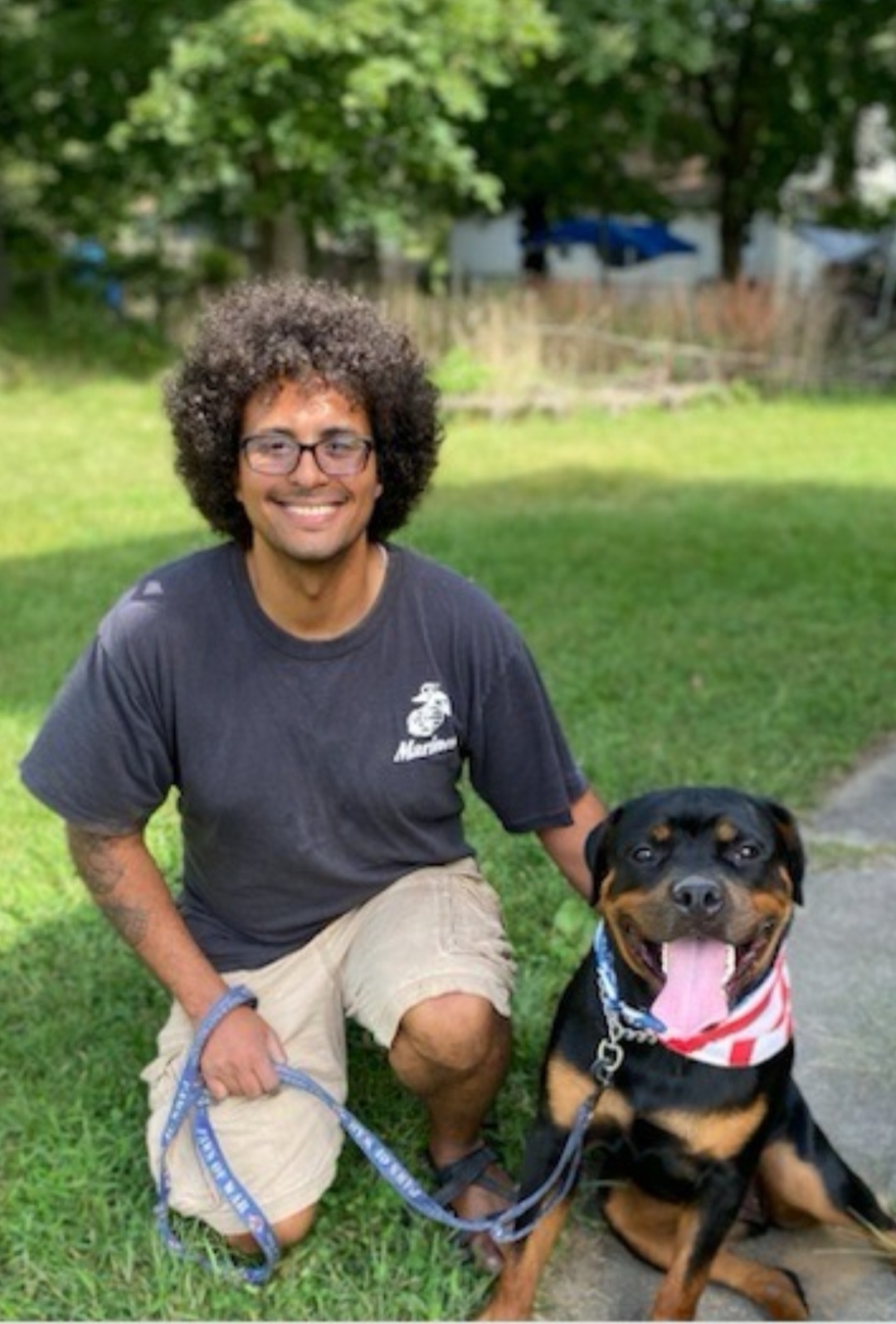 Mike Kilano is a USMC combat veteran. Mike’s MOS was 0621: Comms field radio operation, and he was part of the initial push into Iraq in March 2003. Mike lives with PTSD and TBI, and advocates for PTSD/TBI education. Mike currently works as a veteran advocate at Paws of War, a nonprofit focused on veteran service dog training and placement. He is planning to pursue education in dog training and dog behavior. Mike and his wife are married with five kids, and live on Long Island. He is immensely proud of his children and family, as they are the driving force in his life.
Mike Kilano is a USMC combat veteran. Mike’s MOS was 0621: Comms field radio operation, and he was part of the initial push into Iraq in March 2003. Mike lives with PTSD and TBI, and advocates for PTSD/TBI education. Mike currently works as a veteran advocate at Paws of War, a nonprofit focused on veteran service dog training and placement. He is planning to pursue education in dog training and dog behavior. Mike and his wife are married with five kids, and live on Long Island. He is immensely proud of his children and family, as they are the driving force in his life.
|
|
| NASW-NYS Member | $0.00 |
| NASW Other Chapter Member (Including NYC) | $0.00 |
| Non-Member | $0.00 |
| NASW-NYS Student and Transitional Member | $0.00 |
Information for Certificates
|
